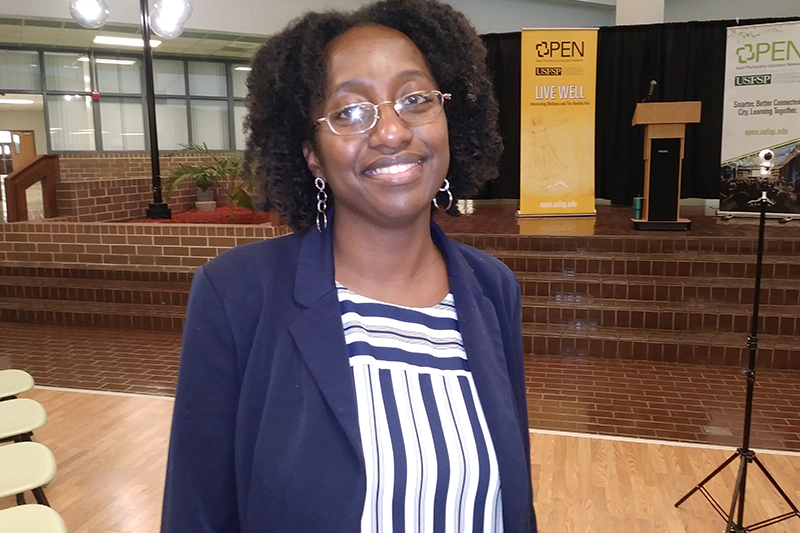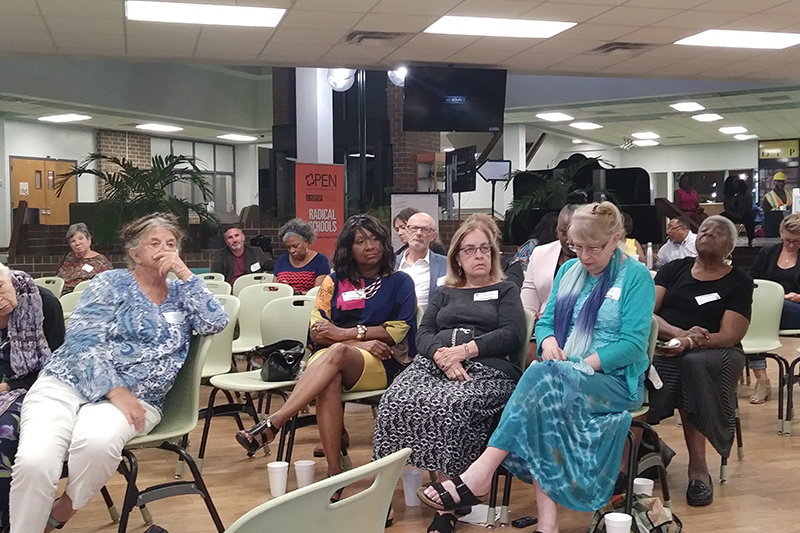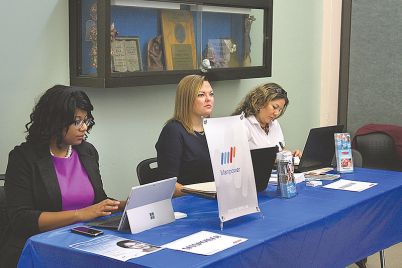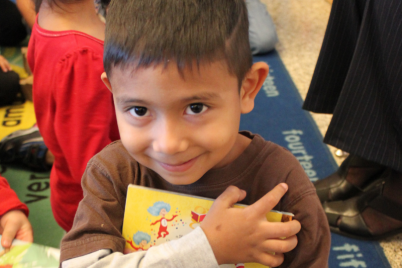Political Science Assistant Professor Dr. Jamila Michener from Cornell University spoke at Pinellas Technical College May 9.
BY J.A. JONES, Staff Writer
ST. PETERSBURG — The University of South Florida St. Petersburg’s Open Partnership Education Network hosted a community conversation and reception for Dr. Jamila Michener, assistant professor of government at Cornell University. She presented an in-depth examination of the stubborn persistence of poverty in communities of color, and the policies that exacerbate these problems.
Michener’s research and writings have often focused on neighborhoods, poverty and political engagement.
“A lot of the work I do is about people and policy and what happens when they come together — and what that means for democratic participation,” she said.
With a presentation of slides that drew a grave picture of the still alarming disparities in poverty, education, unemployment, homeownership, income and wealth, Michener’s graphs all began with the common theme: race matters in America.
In each graph, the impact of race on economic stability and opportunity revealed stark and almost mind-boggling differences in the fortunes of African and Latino Americans when compared to their white counterparts.
Some markers of inequity revealed:
-
In 2016, white families held 10 times more wealth than African-American families and eight times more wealth than Latino families.
-
African Americans were 2.8 times more likely to be denied for a home loan; Latinos were two times more likely.
-
When approved, African Americans and Latinos were 2.4 times more likely to receive a subprime loan than white applicants.
-
Even African-American and Latino families making more than $200,000 annually were more likely on average to receive a subprime loan than a white family making less than $30,000 a year.
-
African-American applicants had to search twice as long as equally qualified white applicants before receiving a callback or job offer from an employer.









